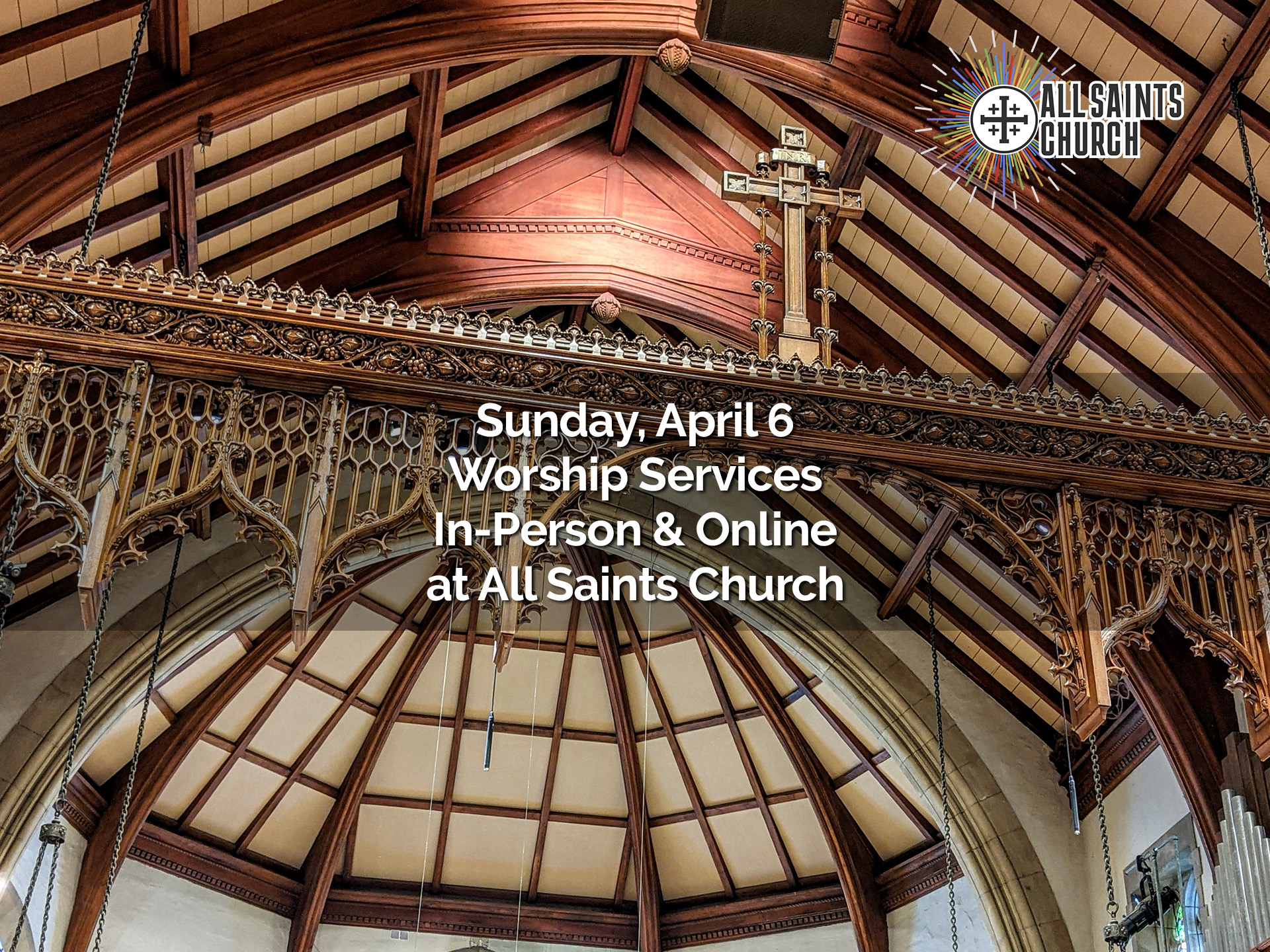The Gospel isn’t meant to be gulped down on Sunday morning, but gnawed on through the week so it really becomes a part of us. You’ve got to work at it, like a dog with a good bone! Here’s the Gospel for this coming Sunday — the Fifteenth Sunday After Pentecost — with food for thought about our relationship with money. Gnaw away!
Fifteenth Sunday After Pentecost – Luke 16:1-13
Jesus said to the disciples, “There was a wealthy landowner who, having received reports of a steward mismanaging the property, summoned the steward and said, ‘What’s this I hear about you? Give me an account of your service, for it’s about to come to an end.’ The steward thought, ‘What will I do next? My employer is going to fire me. I can’t dig ditches. I’m ashamed to go begging. I have it! Here’s a way to make sure that people will take me into their homes when I’m let go.’
“So the steward called in each of the landowner’s debtors. The steward said to the first, ‘How much do you owe my employer?’ The debtor replied, ‘A hundred jars of oil.’ The steward said, ‘Take your invoice, sit down quickly and make it fifth.’ To another the steward said, ‘How much do you owe?’ The answer came, ‘A hundred measures of wheat,’ and the steward said, ‘Take your invoice and make it eighty.’
“Upon hearing this, the owner gave this devious worker credit for being enterprising! Why? Because the children of this world are more astute in dealing with their own kind than are the children of light. So I tell you: make friends for yourselves through your use of this world’s goods, so that when they fail you, you’ll be welcomed into an eternal home. If you can trust others in little things, you can also trust them in greater, and anyone unjust in a slight matter will also be unjust in a greater. If you can’t be trusted with filthy lucre, who will trust you with true riches? And if you haven’t been trustworthy with someone else’s money, who will give you your own?
“Subordinates can’t have two superiors. Either they’ll hate the one and love the other, or be attentive to the one and despise the other. You can’t worship both God and Money.”
The Backstory – What’s Going On Here?
It must be clear from our journey through the Gospel of Luke this year that anyone who thinks Jesus isn’t concerned with money simply isn’t paying attention! Once again, we have a parable about our relationship with wealth … and this is the most unusual yet, because Jesus holds up as an example a real rascal and operator, a thoroughly dishonest person!
This “devious worker” was about to be fired from his money managing job. He is too lazy to dig and too proud to beg so he needs to figure some way to make a living. Very cleverly, he decides to take advantage of his job while he still has it and puts his master’s creditors in his debt by forgiving large portions of their debt — knowing they will then owe him favors that will come in handy when he is unemployed.
It’s a thoroughly dishonest thing to do, and Jesus makes two points about it. The first is that we need to be just as thoroughly faithful with what God has given us as the dishonest steward is dishonestly clever with what he had been entrusted with. Second, that we cannot live in both worlds — the world of acquisition of wealth and the world of faith in God.
A few things to chew on:
*Former major league pitcher Jim Bouton ends his famous book, Ball Four, with this quote:
“You spend a good piece of your life gripping a baseball, and in the end it turns out that it was the other way around all the time.”
Jesus refers to wealth and God as competing “masters.” We’re used to thinking of wealth as something that we control, but Jesus is speaking a core truth — that the power of material wealth is that even though we may think we control it, if we are bound by the desire for it, than it is the wealth, not us, that is the master. Think about your relationship with money. Do you control it, or does it control you? Is preservation or acquisition of wealth a guiding force in the decisions you make … or is serving God?
*Jesus talks of the dishonest steward with a certain degree of admiration … it’s one of the things that makes this parable so odd. The dishonest steward was clever … and we are called to be just as clever in loving. Human ingenuity is an amazing thing. What has happened in recent years on Wall Street shows what incredible wealth-making people can accomplish when they are deviously creative (and the incredible damage that can also cause). The gift to be clever and shrewd is a part of us being made in God’s image. Modern saints like Gandhi, Martin Luther King, and Dolores Huerta are examples of how that shrewdness can be used for the love of God. How creative and shrewd can we be in serving God and neighbor? What does that look like in our life as All Saints Church?
Try This:
Who owns you? That’s the central question of this parable. This week take a half hour and sit down with your calendar or day-planner and also with your checkbook or however you track your finances. See how you spend your time and your money. Then think of the life Christ calls us to live … a life of self-giving love. A life of taking joy in creation and striving for justice and peace. Think of our mission that we have just affirmed as All Saints Church:
We are an Episcopal church, following a revolutionary Jesus,
Loving without judgment
Doing justice courageously
Embracing life joyfully
Reverently inviting all faiths and peoples into relationship
For the healing and transformation of ourselves, our community and the world.
Is how you are spending your time in money drawing you into that deeper relationship? How does your calendar and checkbook reflect that? How does your calendar and checkbook not reflect that? What is one thing you spend time or money on this week that you can do more joyfully out of the knowledge that you’re following Christ by doing it? What is one small thing you can change in terms of time and money to follow Christ more closely?
Money
Money get back
I’m all right Jack
Keep your hands off my stack
-Pink Floyd
Jesus talks a lot about money.
He talks more about money than he talks about heaven and hell combined. 11 of 39 parables and one of every seven verses in Luke’s Gospel talk about money.
Jesus talks about money more than anything else except the Kindom of God.
So we probably should pay attention … ’cause it seems like this is pretty important.
Of all the parables about money, this one is probably the most bizarre. It feels like Jesus is praising a cheat. But I think something else is going on here.
The “dishonest steward” knows the axe is going to fall … so he uses his master’s money to buy the affection and favor of people who can help him have a soft landing.
Why does Jesus think this is a good thing?
I think it’s all about how we think about money.
We are tempted at every turn to think of money as a good in itself and as an end in itself. “To make money” is seen as a perfectly valid justification for any number of choices … career or otherwise.
And so because money is our goal, we end up serving money. Often without a thought to why … or what the money might be for.
But the dishonest steward recognizes that money is not an end unto itself. It’s just an asset … and the real point is what do you use it FOR? What is the real end. For him, he saw the chance to use money to buy him favors and influence down the road. We can question the ethics of that … but the point is that he got that money is not an end in itself. It’s something to be used.
After this parable, Jesus immediately talks about serving two masters. We know we are called to serve God … but if we see money as an end in itself, that becomes the second master. And you cannot serve both.
This parable throws a huge challenge in our faces: Do we follow the conventional wisdom of the world — and Roger Waters — and treat money as an end in itself? Or do we use money as a means to something else –serving God and ushering in the Kindom of God?
Put another way … do we move our money toward love or toward fear?
As we deal with our own finances — personally and as a congregation and diocese, do we make decisions based on what will safeguard and grow our money … believing that money is a good and end unto itself. Or do we ask the “for what?” question and make those decisions based on what will move us from fear to love?
What do you think? As you look at how you and we make decisions about money … do you think Jesus would say we are serving one master or trying to serve two?
. . . . . . . . . . . . . . . . . . . . . .
Check out the rest of Sunday’s readings
The Lectionary Page has all of the readings for this Sunday and every Sunday – click here for this Sunday’s readings.
Collect for Sunday
Pray this throughout the week as you gnaw on this Gospel.
Grant us, Lord, not to be anxious about earthly things, but to love things
heavenly; and even now, while we are placed among things that are passing
away, to hold fast to those that shall endure; through Jesus Christ our
Lord, who lives and reigns with you and the Holy Spirit, one God, for ever
and ever. Amen.



